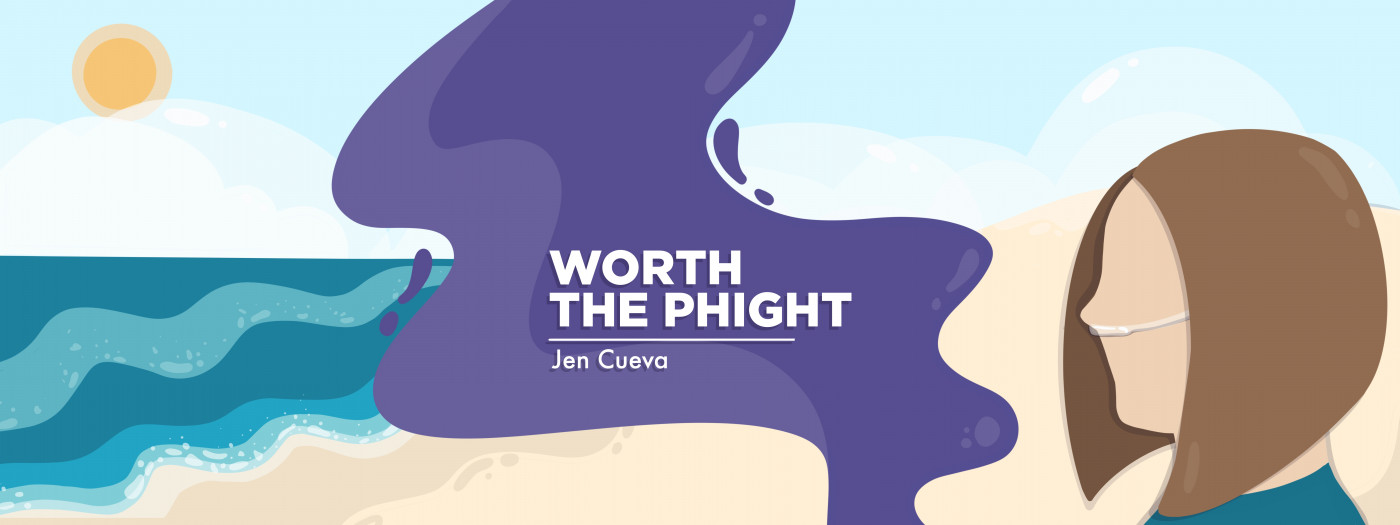Learning to Love My Body Despite the Effects of PH
Written by |

Some days, as I catch a glimpse of the woman in the mirror, I find the reflection unrecognizable. The dark, weary circles around the eyes, the protruding cheek and collarbones, the pale, bluish skin — that’s me. This can leave me startled and discontented, with tears running down my face.
Pulmonary hypertension (PH) changes us in profound ways, whether we like it or not. It’s often hard to practice self-confidence or self-love with PH. Unlike symptoms or medication side effects, medical teams rarely share this information when we’re diagnosed with the disease.
I’ve struggled with self-love
Over the last few days, I’ve been embarrassed to go out in public. Unfortunately, my skin is thin and bruises easily. I have a massive black and blue bruise across my right upper wrist like an unwanted bracelet. This usually results from medication side effects and my coexisting health concerns.
I had appointments this morning, but wearing long sleeves was not an option in the Texas heat. I explained to my family that I didn’t want to be seen because I feared being judged. My opinionated daughter and husband both had thoughts — imagine that. They reminded me that people will judge anyway.
Before my diagnosis, I took my body for granted
Before PH, I could walk, run, exercise, and do most activities without requiring assistance or struggling to breathe. I now experience chest tightness, heaviness, tachycardia, and palpitations, often when at rest. I no longer take my body for granted, and am learning how to practice self-love with PH.
I blame my body for bad days
I blame my body on days it doesn’t want to cooperate. It’s like we’re at war. In reality, it’s often my mindset that needs adjusting. Reminding myself that I’m alive, breathing, and loved by many — just as I am — helps me through these rough patches.
Mindset matters when practicing self-love with PH
While trying to manage my PH and comorbidities, I often put my body and needs to the side. When I’m exhausted, sleeping poorly, and struggling to manage my health, I turn to negativity and body shaming. My inner voice reminds me that I taught my daughter to love and appreciate her body, but I’m neglecting to do the same.
Those of us in the PH and rare disease communities must learn to love, nurture, and appreciate our bodies. Think of a flower. It needs nurture, water, and sunlight to grow and bloom. Our bodies need this, too. Chronic illness tries to keep us dry as we thirst for water.
What can we do to nurture, love, and grow our bodies? It’s not rocket science. Following are six of my favorite tips for practicing self-love with PH.
- Be OK with imperfection. I love this quote from author Amy Bloom: “You are imperfect, permanently and inevitably flawed. And you are beautiful.”
- Changing our mindset is vital. We must remind ourselves not to worry about what others think. Someone will always have an unsolicited opinion.
- Spend time with those who love and accept us for who we are. Once we start these vulnerable discussions, we can allow their love to offer us peace as we learn to love ourselves.
- We all need to learn to love and appreciate our bodies. Think about how much our bodies go through, and how miraculously they heal and keep us going. After endless tests and strain, we often continue to push beyond our limits. Say thank you by nurturing your body. It truly is a miracle.
- Like that flower, we, too, need water and nourishment. Eat and drink things that will strengthen your body and keep you going. Don’t forget any special diets your doctors may recommend, such as a low-sodium or whole food diet.
- Rest and recovery are crucial for those of us with PH and other chronic illnesses. It can be challenging to listen to our bodies and respect the need for rest. Work with your body, not against it.
Be kind to yourself and content with whatever you can do today. I tell myself that anything beyond waking up and breathing is a bonus.
If you need a confidence boost, join us at the PH News Forums. We are happy to provide support and talk with you as you share your struggles.
***
Note: Pulmonary Hypertension News is strictly a news and information website about the disease. It does not provide medical advice, diagnosis, or treatment. This content is not intended to be a substitute for professional medical advice, diagnosis, or treatment. Always seek the advice of your physician or other qualified health provider with any questions you may have regarding a medical condition. Never disregard professional medical advice or delay in seeking it because of something you have read on this website. The opinions expressed in this column are not those of Pulmonary Hypertension News or its parent company, Bionews, and are intended to spark discussion about issues pertaining to pulmonary hypertension.





Leave a comment
Fill in the required fields to post. Your email address will not be published.